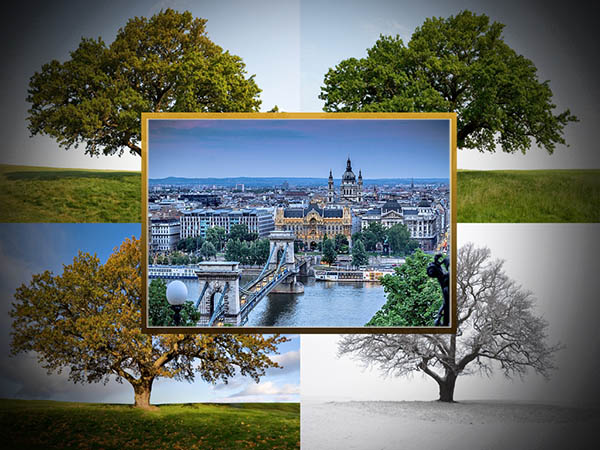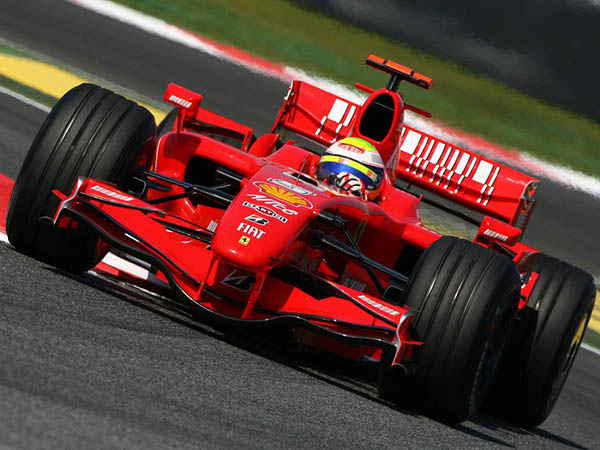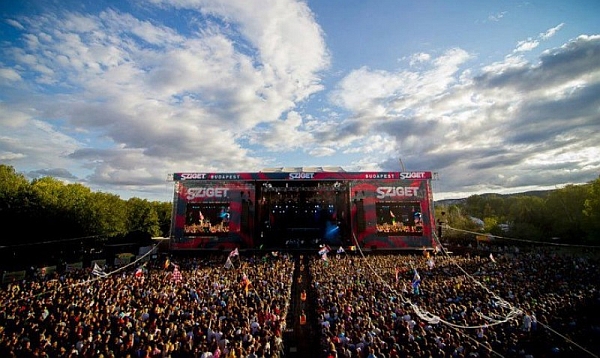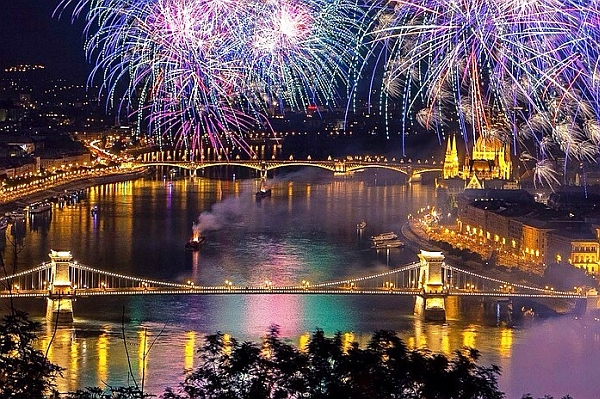Having joined the European Union in 2004, the tourism infrastructure has developed at a furious pace in Hungary. There are many high-quality hotels and restaurants for all budgets, yet new hotels and dining opportunities continue to appear on the scene. Major improvements in the service sector have been noticeable over the past few years, but there is always room for improvement.
You will find tourism-related information offices called Tourinform (00 36 1 438-8080 or 00 36 80 630-800; http:// tourinform.hu), a branch of the Hungarian National Tourist Office, at V. Sütő u. 2., Budapest; open daily from 8am to 8pm. You’ll also find a branch office in the heart of Budapest’s Broadway, at Liszt Ferenc tér 11. (00 36 1 322-4098), open daily from noon to 8pm.
These offices distribute pamphlets on events and attractions within the city in which they are located. They can assist you with finding appropriate accommodations and restaurants, but once outside of large cities, the amount of English decreases.
When to go to Budapest
We recommend spring and fall to until the middle to end of April reverting to those who ask what are the best seasons to them again from about mid-September, visit.

Hotels are on low-season rates usually Generally, hotels will use their special season rates for Christmas and New Year, but winters generally are cold and gray, casting a dark shadow over a glorious city. When it does snow, it generally dissipates within few days.
If you choose Christmas time for your holiday, remember to consider that half a day of Christmas Eve, all of Christmas, and the day after are holidays. Many things will be closed for those days; however, some museums open on December 26 if it does not fall on a regularly scheduled closed day.
The afternoon of New Year’s Eve will have most places shuttered closed with the exception of restaurants, and all of New Year’s Day is a legal holiday.
From sometime in April to mid-September, many activities come alive. The outdoor pools are open, and the outdoor squatters beer pubs start appearing like mushrooms after a rain. Spring is a perfect time to ride the Children’s Railroad or the chairlift.
Other activities hibernate during the summer as it can get really warm, especially July and August. Without air conditioning in many venues, like the Opera House, it is too hot to offer regular programming during the summer.
There are short-term events held sporadically. Make sure to pack an umbrella. We do get a number of days of rain but for the most part, they are passing showers seldom lasting more than a day, but often only lasting hours.
Budapest and the rest of Hungary has been held hostage by the economic crisis, creating a dramatic drop in tourism. Regardless of when you decide to visit, you are sure to find some bargains. With a little planning you can come to Budapest at a time that will coincide with one or more of the city’s cultural events; however, if you miss these, there is always something worthy happening; it is a city of festivals.
All inquiries about ticket availability and locations of events can first be checked online where you can also buy tickets for many venues at www.jegymester.hu.
For other information, contact Budapest’s main tourist information office, Tourinform, referred to earlier in this post.
March
Budapest Spring Festival (Budapesti Őszi Fesztivál). For 2 weeks, performances of opera, concerts, dance, and drama are held at all the major halls and theaters of Budapest. Simultaneously, temporary exhibitions open in many of Budapest’s museums. Tickets are available from the Festival Ticket Service, (00 36 1 486-3311, weekdays 10am to 5pm or from http://www.cafebudapestfest.hu. If you have questions, you may also have a look at www.festivalcity.hu. Book your tickets as soon as possible as the best shows sell out a few days after they are announced. The festival runs mid- to late March.
Hollókő’s Easter Festival. During Easter in this charming, small town in northeastern Hungary, villagers wear traditional costumes and participate in a folk festival featuring traditional song, dance, and foods. Held on Easter Day, it is as popular with Hungarians as with travelers, so expect a crowd.
June, July & August
Open-Air Theater Programs. Budapest has a rich variety of open-air performances throughout the city during the summer. Highlights include opera and ballet on Margaret Island in the Open-Air Theater; folklore, and dance at the Buda Park Theater; musicals in Margaret Island’s Városmajor Theater; and classical music recitals in the Dominican Courtyard at the Hilton Hotel. On the last weekend of June through the second weekend of July, the Chain Bridge has a band on either side with the entire bridge hosting a fair. For information, pick up a copy of Budapest Panorama from Tourinform, listing all events during the given month. Open-Air events are June through August.
Szeged Summer Festival. Szeged, the proud capital of the Great Plain, is home to a summer-long series of cultural events (ballet, opera, rock opera, and open-air theater). For information, call 00 36 62 471-411; www.szegediszabadteri.hu. June through August.
Organ Concerts, Budapest. Concerts are given in the Matthias Church, in the lovely Castle District of Buda. June through August. In addition, Budapest’s largest church, St. Stephen’s Basilica, also hosts concerts outside the front doors. If you don’t care about sitting, you can listen for free. July through August.
International Palace Tournament, Visegrád. Each summer, this ancient town hosts an authentic medieval festival replete with dueling knights on horseback, and early music and dance. Contact Visegrád Tours, RÉV u. 15, Visegrád (00 36 26 398-090; www.palotajatekok.hu). Second weekend in July.
“Budafest” Summer Opera and Ballet Festival, Budapest. This summer festival (usually held during the tail end of July and six times in August) is the only time to see a summer performance at the glorious Hungarian State Opera House in Budapest. Tickets are available at the Opera House box office at VI. Andrássy út 20. (00 36 1 331-2550; www.opera.hu).
Formula One Grand Prix, Budapest. One of the European racing circuit’s most important annual events is held at Budapest’s HungaroRing in Mogyoród. Hotels increase their rates considerably for this event, so plan ahead. Call 00 36 28 444-444 or check out www. hungaroring.hu. Last weekend in july or first, second weeken in August.

Island Festival (Sziget Fesztivál), Óbuda Island in the Danube. Established in 1994 as Hungary’s very own Woodstock, the Sziget Festival (www.sziget.hu) is a weeklong music festival that draws people from all over Europe, but the scope is now worldwide. It is one of the largest music festivals in Europe, gaining in popularity each year. The event features foreign and local rock, folk, jazz, world music, and other groups on dozens of stages playing each day from early afternoon to the wee hours of the morning. Camping is available. You can get details and pick up a program schedule at Tourinform, or check out their website. Usually begins the second week of August.

Traditional Handicraft Fair, Budapest. The Castle District is the site of a 3-day annual handicraft fair, which draws vendors from across Hungary and from Hungarian enclaves in neighboring countries, especially Romania. The wares are generally handmade and of high quality. This is part of the St. Stephen’s Day celebrations. August 20.
St. Stephen’s Day, Budapest. Hungary’s national day. The country’s first king and patron saint is celebrated with cultural events and a dramatic firework display over the Danube at 9pm. St. Stephen’s mummified hand is paraded through the streets. Hungarians also celebrate their constitution on this day and ceremoniously welcome the first new bread from the crop of July wheat. August 20.

National Jewish Festival, Budapest. Celebrating its 16th year in 2015, this annual festival enriches the Hungarian cultural scene. The festival features a variety of Jewish culture-related events. Features range from klezmer music to a book fair, from ballet to cabaret, held at various locations for the different venues offered. For information, contact the Tourism and Cultural Center of the Budapest Jewish Community, Budapest, Síp u. 12. (00 36 1 343-0420; www.jewishfestival.hu). Late August into early September; see their website for exact dates.
September
Budapest International Wine Festival. This festival, in Budapest’s Castle District, features wine tastings, displays, and auctions, as well as folk and classical music performances. Each year, there is a guest country that shares its wines. The sponsor is the Hungarian Viniculture Foundation, XI. Bartók Béla út 152. (00 36 1 203-8507; www.aborfesztival.hu). Early September.
Budapest International Fair. For 10 about days, Budapest’s HungExpo grounds fill with displays of Europe’s latest consumer goods. www.hungexpo.hu. Mid-September.
Budapest Art Weeks. In celebration of the opening of the fall season, special classical music and dance performances spring up for 3 weeks in all the city’s major halls. For information, contact the Hungarian Arts Festivals Federation or pick up a Budapest Panorama at Tourinform. The festivals’ traditional start is September 25, the day of Béla Bartók’s death.
Contemporary Music Weeks, Budapest. Held in conjunction with the Budapest Art Weeks, this 3-week festival features contemporary music performances in all the capital’s major halls. For information, contact the Hungarian Arts Festivals Federation (00 36 1 318-8165). Starts the end of September.
About weather conditions, please see our Budapest’s weather page.